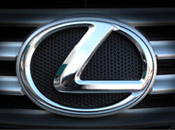Lower Your 2016 Lexus GS 200t Insurance Cost
Do you get confused by the sheer number of insurance coverage companies available to you? Many other people are as well. You have such a vast assortment of companies available that it can turn into a real hassle to find a more affordable company.
How to buy insurance
There are a variety of methods to compare insurance prices but one way is easier and takes less work. You can spend countless hours discussing policy coverages with local insurance agents in your area, or you can stay home and use online quoting for quick rates.
Most car insurance companies belong to an insurance system that allows shoppers to enter their coverage request one time, and every company returns a competitive quote based on that data. This system prevents you from having to do form submissions to each company.
To compare rates now click to open in new window.
The only downside to doing it this way is you cannot specify which providers to get pricing from. So if you want to select specific insurance companies to compare, we have a listing of companies who write insurance in your area. Click here to view list.
It’s up to you which method you use, but do your best to use equivalent coverage limits on every quote you get. If the quotes have different values for each quote it will be nearly impossible to determine which rate is truly the best. Quoting even small variations in insurance coverages or limits can mean a large discrepancy in price. It’s important to know that comparing more quotes gives you a better chance of getting lower pricing. Some smaller insurers to not give online price quotes, so you should also compare price quotes from the smaller companies as well.
Tailor your insurance coverage to you
When buying coverage, there really is not a best way to insure your cars. Everyone’s situation is unique.
For instance, these questions may help highlight if you might need an agent’s assistance.
- Do I benefit by insuring my home with the same company?
- How high should my uninsured/underinsured coverage be in my state?
- Why does it cost so much to insure a teen driver?
- Can I afford low physical damage deductibles?
- Is upholstery damage covered by car insurance?
- Do I need an umbrella policy?
- Do I need more liability coverage?
- Do I need rental car coverage?
If it’s difficult to answer those questions but you think they might apply to your situation then you might want to talk to an agent. If you want to speak to an agent in your area, complete this form.
Car insurance coverage breakdown
Knowing the specifics of your car insurance policy aids in choosing the right coverages for your vehicles. The coverage terms in a policy can be confusing and reading a policy is terribly boring.
Liability car insurance
Liability coverage can cover damage that occurs to a person or their property. It protects YOU against claims from other people, and does not provide coverage for damage to your own property or vehicle.
Split limit liability has three limits of coverage: bodily injury for each person, bodily injury for the entire accident, and a limit for property damage. You commonly see policy limits of 25/50/25 which stand for a $25,000 limit per person for injuries, $50,000 for the entire accident, and a total limit of $25,000 for damage to vehicles and property.
Liability coverage pays for things such as legal defense fees, attorney fees, structural damage, repair bills for other people’s vehicles and bail bonds. How much liability should you purchase? That is up to you, but buy as high a limit as you can afford.
Uninsured/Underinsured Motorist (UM/UIM)
This provides protection from other drivers when they do not carry enough liability coverage. Covered claims include injuries sustained by your vehicle’s occupants as well as damage to your 2016 Lexus GS 200t.
Since many drivers only carry the minimum required liability limits, their liability coverage can quickly be exhausted. For this reason, having high UM/UIM coverages is important protection for you and your family.
Comprehensive insurance
This pays for damage OTHER than collision with another vehicle or object. You first must pay your deductible and the remainder of the damage will be paid by comprehensive coverage.
Comprehensive insurance covers things such as damage from getting keyed, damage from flooding and hail damage. The maximum payout your car insurance company will pay is the actual cash value, so if your deductible is as high as the vehicle’s value it’s probably time to drop comprehensive insurance.
Collision protection
Collision coverage pays for damage to your GS 200t caused by collision with another vehicle or an object, but not an animal. A deductible applies and then insurance will cover the remainder.
Collision insurance covers claims like colliding with a tree, damaging your car on a curb, driving through your garage door and rolling your car. Collision is rather expensive coverage, so analyze the benefit of dropping coverage from older vehicles. Another option is to bump up the deductible to get cheaper collision coverage.
Med pay and Personal Injury Protection (PIP)
Personal Injury Protection (PIP) and medical payments coverage pay for immediate expenses for ambulance fees, pain medications and rehabilitation expenses. They are used to cover expenses not covered by your health insurance program or if you do not have health coverage. Medical payments and PIP cover you and your occupants in addition to any family member struck as a pedestrian. PIP is only offered in select states and gives slightly broader coverage than med pay

